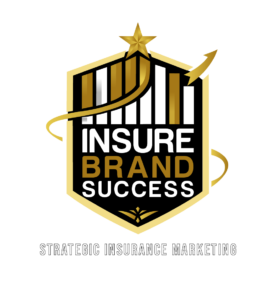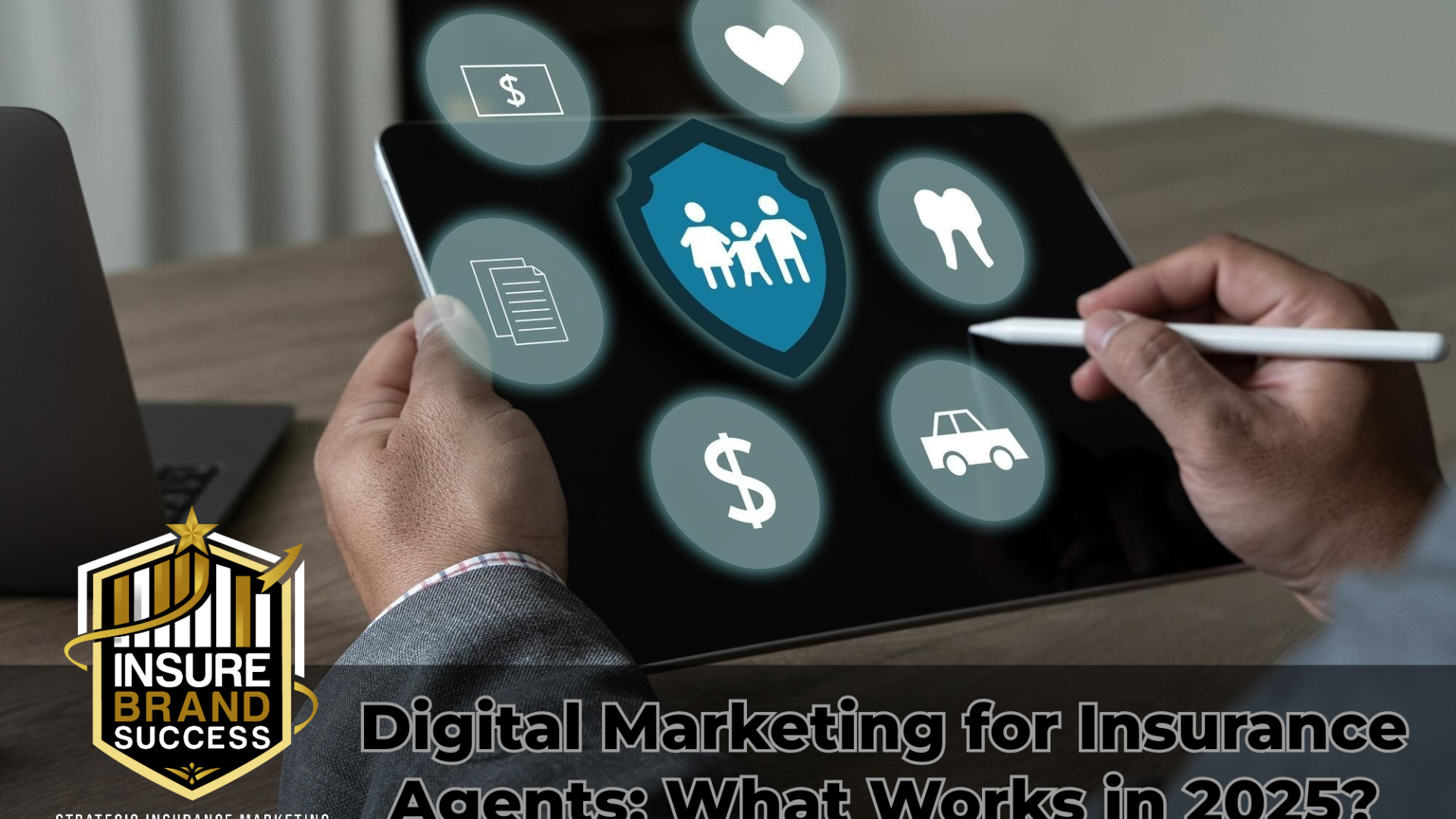As the insurance industry becomes increasingly competitive, digital marketing has emerged as an essential tool for agents aiming to attract clients, build lasting relationships, and grow their businesses. With 2025 presenting new trends and technologies, insurance agents must refine their strategies to stay ahead of the curve. This guide highlights the most effective digital marketing techniques tailored to the unique needs of insurance agents, providing actionable insights for measurable growth.
Why Digital Marketing Matters for Insurance Agents
Digital marketing offers insurance agents a cost-effective way to reach their target audience, deliver personalized experiences, and build trust. Whether your focus is on acquiring new clients or retaining existing ones, the right strategy can significantly enhance your results.
Key benefits include:
- Expanded Reach: Digital marketing allows you to connect with clients where they are—online.
- Improved ROI: Data-driven campaigns ensure that your marketing budget is spent efficiently.
- Stronger Relationships: Tools like email and social media create ongoing touchpoints with clients.
Learn more about Digital Marketing for Insurance Agencies to see how these strategies can transform your agency’s growth.
Strategies That Work in 2025
To thrive in 2025, insurance agents need a multi-channel digital marketing strategy that combines SEO, social media, email campaigns, and paid advertising. Here’s what works:
1. Invest in SEO for Long-Term Visibility
Search Engine Optimization (SEO) is the backbone of any effective digital marketing strategy. Optimizing your website and content ensures that potential clients can find your agency when searching for insurance services.
- Keyword Optimization: Focus on phrases like “affordable life insurance for families” or “business insurance broker near me.”
- Local SEO: Claim your Google My Business profile and use location-specific keywords to attract local clients.
- Content Marketing: Create blog posts, FAQs, and resources that answer common client questions, such as “What does liability insurance cover?”
Explore SEO Solutions for Insurance to enhance your website’s visibility.
2. Leverage Social Media for Engagement
Social media platforms like Facebook, LinkedIn, and Instagram are invaluable for insurance agents looking to connect with their audience on a personal level.
- Content Strategies: Share posts about insurance tips, client testimonials, or success stories. Use video content to explain complex topics in an engaging way.
- Paid Advertising: Use targeted ads to reach specific demographics, such as young families or small business owners.
- Community Building: Engage with followers by responding to comments, hosting Q&A sessions, and sharing local events.
Learn more about Social Media Strategies to drive meaningful engagement.
3. Use Email Marketing to Nurture Leads
Email marketing remains one of the most effective channels for nurturing leads and maintaining client relationships.
- Segmented Campaigns: Send personalized emails based on client demographics or interests. For example, new homeowners might receive information about home insurance options.
- Automated Follow-Ups: Use automation to remind clients about policy renewals or cross-sell additional services.
- Valuable Content: Share newsletters with tips, updates, and exclusive offers to keep clients engaged.
Discover how Insurance Email Marketing can help you create impactful campaigns.
4. Incorporate Paid Search Advertising (AdWords)
Paid search advertising, such as Google AdWords, offers immediate visibility for high-value keywords. It’s an excellent complement to your organic SEO efforts.
- Target High-Intent Keywords: Use terms like “get a free car insurance quote” or “best liability insurance for small businesses.”
- Geotargeting: Focus your campaigns on specific regions or zip codes to maximize relevance.
- Monitor Performance: Use Google Ads to track clicks, impressions, and conversions, refining your strategy based on data.
Explore AdWords for Insurance Agencies to see how paid search can amplify your results.
5. Optimize Your Website for User Experience
Your website is often the first point of contact between you and potential clients. An optimized, professional site enhances credibility and drives conversions.
- Mobile-Friendly Design: Ensure your site is responsive and easy to navigate on smartphones and tablets.
- Clear Calls-to-Action (CTAs): Use prominent buttons like “Get a Quote” or “Contact Us” to guide visitors.
- Educational Resources: Include blog posts, videos, and FAQs to address common client concerns.
Check out Web Design for Insurance Agencies for more ideas on creating a user-friendly website.
6. Use Analytics to Refine Your Strategy
Digital marketing thrives on data. Regularly analyze your campaigns to identify what’s working and adjust accordingly.
- Google Analytics: Track metrics like website traffic, bounce rate, and user behavior.
- Campaign Metrics: Measure the performance of email, social media, and paid advertising campaigns to optimize ROI.
- Client Insights: Use CRM tools to understand client preferences and improve personalization.
For additional resources, visit the Small Business Administration’s guide to marketing.
Trends Shaping Digital Marketing in 2025
As technology evolves, so do the opportunities for insurance agents to connect with clients. Key trends to watch include:
- Artificial Intelligence (AI): Use AI tools for predictive analytics, chatbots, and personalized recommendations.
- Voice Search Optimization: Optimize your content for voice queries, such as “What’s the best car insurance near me?”
- Video Marketing: Short-form videos, such as client testimonials or policy explanations, continue to drive engagement on platforms like TikTok and Instagram.
Overcoming Challenges in Digital Marketing for Insurance Agents
Despite its potential, digital marketing presents unique challenges for insurance agents:
- Regulatory Compliance: Ensure all marketing materials comply with industry guidelines, such as those outlined by the National Association of Insurance Commissioners.
- High Competition: Standing out among other agencies requires a clear value proposition and consistent branding.
- Measuring ROI: Regular tracking and analysis are essential to determine the effectiveness of your campaigns.
Case Studies: Digital Marketing Success Stories
Case Study 1: Local SEO Excellence
A regional insurance agency optimized their Google My Business profile and targeted local keywords, resulting in a 40% increase in inquiries within six months.
Case Study 2: Social Media Engagement
A life insurance provider used Facebook ads to promote their “Family Protection” plans, generating 200 qualified leads and a 25% increase in policy sales.
FAQs
1. Why is digital marketing important for insurance agents?
Digital marketing is essential for insurance agents because it enables them to connect with a broader audience and establish credibility in an increasingly digital world. It allows agents to target specific demographics, such as young families or small business owners, using cost-effective strategies like SEO, social media, and email marketing. Additionally, digital marketing offers measurable results, helping agents understand which campaigns drive the most leads and ROI.
2. What platforms work best for insurance marketing?
The best platforms depend on your target audience, but these three are highly effective:
- Facebook: Ideal for reaching a broad audience and promoting educational content.
- LinkedIn: Best for networking with professionals and targeting businesses for commercial insurance.
- Google Ads: A powerful tool for capturing high-intent searches, such as “affordable life insurance near me.” Using these platforms strategically helps agents engage diverse demographics and generate qualified leads.
3. How can I improve my SEO?
Improving SEO (Search Engine Optimization) involves several key steps:
- Keyword Research: Identify terms your target clients use, such as “home insurance in [city].”
- High-Quality Content: Create informative articles and resources that address client concerns.
- Local SEO: Optimize for location-based searches by claiming your Google Business Profile and using local keywords. Regularly updating your website with fresh, relevant content and building backlinks from reputable sources also strengthens your SEO strategy. Learn more about SEO for Insurance Brokers.
4. How does email marketing benefit insurance agents?
Email marketing is one of the most effective tools for nurturing leads and improving client retention. Benefits include:
- Personalized Communication: Tailored messages build stronger relationships.
- Client Retention: Keep clients informed about policy updates, renewals, or special offers.
- Cross-Sell Opportunities: Promote additional services, such as bundling auto and home insurance. A well-executed email campaign not only enhances engagement but also drives conversions and lifetime value.
5. What’s the role of analytics in digital marketing?
Analytics are critical for measuring the success of your digital marketing campaigns. Tools like Google Analytics and HubSpot provide insights into website traffic, user behavior, and campaign performance. Key metrics include:
- Click-Through Rate (CTR): Measures the effectiveness of ads and email campaigns.
- Conversion Rate: Tracks how many users take desired actions, like requesting a quote.
- Return on Investment (ROI): Determines the profitability of your campaigns. Using analytics helps refine your strategy, allocate resources effectively, and achieve better results over time.
6. Should I invest in paid search advertising?
Yes, paid search advertising (e.g., Google Ads) is a smart investment for insurance agents. It offers:
- Immediate Visibility: Appear at the top of search results for high-intent keywords.
- Targeted Reach: Focus on specific demographics or geographic areas.
- Complementary Benefits: Paid ads work alongside organic strategies like SEO, ensuring comprehensive visibility. By balancing paid search with organic methods, agents can attract both immediate and long-term leads.
7. How do I ensure compliance with industry regulations?
Compliance is crucial in the insurance industry to maintain trust and avoid legal issues. To ensure your marketing aligns with regulations:
- Review Content: Check that all materials comply with industry guidelines, such as those provided by the Insurance Information Institute.
- Be Transparent: Clearly disclose terms, conditions, and any disclaimers.
- Consult Experts: Work with marketing professionals who understand the nuances of insurance regulations.
8. What’s the best way to start with social media marketing?
Starting with social media marketing involves these steps:
- Identify Your Target Audience: Understand their preferences, pain points, and preferred platforms.
- Create Engaging Content: Share posts that educate, entertain, or inspire action, such as infographics about coverage types or client success stories.
- Run Targeted Ad Campaigns: Use platform-specific tools to reach specific demographics (e.g., age, location, or interests). Consistency and authenticity are key to building a loyal social media following.
Why Digital Marketing Matters in 2025
By embracing digital marketing strategies like SEO, social media, email marketing, and paid advertising, insurance agents can stay competitive and meet the needs of modern clients. These approaches help agents establish trust, increase visibility, and drive sustainable growth. Ready to enhance your digital presence? Contact Insure Brand Success for expert guidance and tailored solutions that deliver measurable results. For more resources, check out HubSpot’s Marketing Tools or Google Digital Marketing Courses.
The time to elevate your marketing efforts is now!




